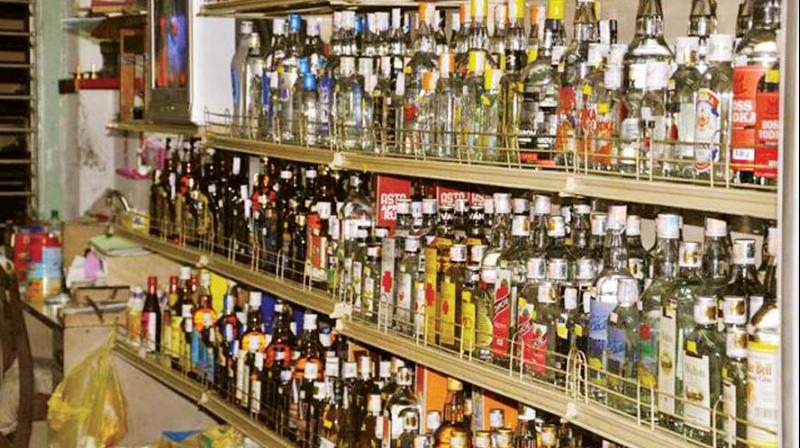Karnataka wants Supreme Court to modify liquor ban on highways
More than 60 per cent of the excise licensees will go out of business as a result of the apex court order.

Bengaluru: The state government is likely to seek modification of the Supreme Court order on the ban of liquor vends on national and state highways with effect from April 1, 2017, an official source told this newspaper.
“More than 60 per cent of the excise licensees will go out of business as a result of the apex court order. Their livelihoods, and of those working for them will be impacted by the liquor ban on highways. Out of 10,097 licensees, 6,000 licensees have liquor outlets on the highways. They will either have to relocate before the March 31 deadline or their license will not be renewed. The licensees also include star hotels. The government will seek legal opinion from the Advocate General on the issue this week, because the move will also adversely impact the revenue of the state. The Excise Department contributes to more than 20 per cent of the State’s total taxes,” the officer said.
Last week, the 33 deputy commissioners of excise submitted the numbers of licensees who will be impacted by the court order to the Excise Commissioner. “The figures were later placed before the chief minister during his review meeting of the Revenue Department last week,” the officer said. Excise Commissioner Manjunath Naik had held a meeting with all the licensees, during which they had voiced their concern of losing their livelihoods if they were asked to relocate their liquor vends from the highways. “The licensees may also go on appeal before the Supreme Court for a modification of the ban order,” he said.
The Supreme Court on December 15 took serious exception to the high number of fatalities (approximately 1.5 lakh annually in road accidents) on the highways across the country and had banned states and UTs from renewing licenses to highway liquor outlets after March 31, 2017. The court, while ordering prohibition along the highways, had maintained that no liquor stores should be allowed within a distance of 500 metres from the outer edge of the highways and service lanes or should be visible from the highways. The prohibition is extended to stretches of such highways, which fall within the limits of municipal corporations, tows and local authorities. The court had also directed the states and UTs to remove liquor signage and advertisements on the highways and had given a month’s time to the chief secretaries and police chiefs to chalk out their implementation plan. The apex court had also come down heavily on the states and UTs for covering up for the liquor lobby.

